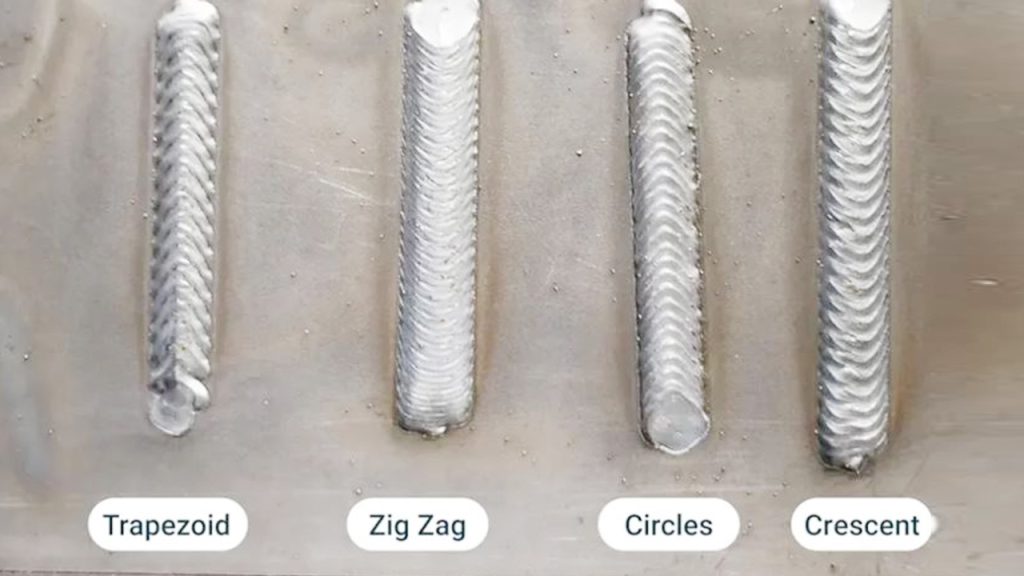Looking for welding training? You have many options available to you.
Training for welding is offered at various places, each catering to different needs and skill levels. Welding is an essential skill in many industries. Whether you want to start a new career or improve your current skills, finding the right training is crucial.
Many institutions offer programs designed to teach welding techniques, safety practices, and industry standards. These programs can vary in length and depth, so it’s important to choose one that fits your goals. Let’s explore the best places to get the training you need to become a skilled welder.
Top Welding Schools
So, you’re interested in welding and looking for the best schools to hone your skills? Great choice! Welding is a fantastic trade that can offer a rewarding career. But where do you start? Finding the right training program is crucial. Here, we will explore some of the top welding schools that can set you on the path to success.
Lincoln Electric Welding School
Lincoln Electric Welding School, based in Cleveland, Ohio, is one of the top choices for aspiring welders. Established in 1917, it has a long history of providing quality education. They offer a range of courses from basic welding techniques to advanced processes.
What makes Lincoln Electric Welding School stand out?
- Experienced Instructors: Learn from experts who have years of industry experience.
- Hands-On Training: Get plenty of practice with state-of-the-art equipment.
- Flexible Programs: Options for full-time, part-time, and specialized courses.
- Certification: Graduate with certifications that are recognized across the industry.
Whether you are just starting or looking to upgrade your skills, Lincoln Electric Welding School has something for everyone.
Hobart Institute Of Welding Technology
If you’re aiming for comprehensive training, Hobart Institute of Welding Technology in Troy, Ohio, is another excellent option. Known for its rigorous curriculum and high standards, Hobart has been training welders since 1930.
Why choose Hobart Institute of Welding Technology?
- Comprehensive Curriculum: From basic to advanced welding, they cover it all.
- Industry Connections: Strong ties with employers can help you land a job after graduation.
- State-of-the-Art Facilities: Modern labs and equipment for a real-world experience.
- Small Class Sizes: More one-on-one time with instructors.
With a focus on both theory and hands-on practice, Hobart ensures you are job-ready from day one.
Choosing the right welding school can make a big difference in your career. Both Lincoln Electric Welding School and Hobart Institute of Welding Technology offer exceptional programs that can help you achieve your goals. So, what are you waiting for? Dive into the world of welding and ignite your future!

Credit: www.uti.edu
Community College Programs
When you’re looking to start a career in welding, community college programs can be an excellent starting point. They offer a mix of practical experience and theoretical knowledge, setting you up for success in this in-demand trade. Community colleges are often more affordable than private institutions, making them a popular choice for many aspiring welders. Let’s dive into the advantages of community colleges and highlight some notable programs.
Advantages Of Community Colleges
Community colleges have a lot to offer, especially for those new to welding. Here are some key advantages:
- Affordability: Community colleges are known for their lower tuition fees compared to universities and private training centers. This makes them an accessible option for many students.
- Flexible Schedules: Many community colleges offer evening or weekend classes, allowing you to balance your studies with work or other commitments.
- Hands-On Experience: Welding is a skill best learned through practice. Community colleges typically provide well-equipped workshops where you can gain the hands-on experience you need.
- Small Class Sizes: Smaller class sizes mean more personalized attention from instructors, helping you to grasp techniques and concepts more effectively.
- Local Connections: Community colleges often have strong connections with local businesses and industries, which can help you find internships and job placements after graduation.
Notable Community College Programs
Now that you know the benefits, let’s look at some community colleges that offer top-notch welding programs:
| College | Location | Program Highlights |
|---|---|---|
| Lincoln Land Community College | Springfield, Illinois | Offers both certificate and degree programs with a focus on various welding techniques. |
| Greenville Technical College | Greenville, South Carolina | Known for its comprehensive welding technology program and industry connections. |
| Lone Star College | Houston, Texas | Provides hands-on training with state-of-the-art equipment and facilities. |
| Portland Community College | Portland, Oregon | Features a wide range of welding courses and strong support for job placements. |
Choosing a community college program for welding can set you on the path to a rewarding career. These programs are designed to equip you with the skills and knowledge needed in the welding industry. Whether you’re looking for affordability, flexibility, or strong local connections, community colleges have a lot to offer. So why wait? Dive into a welding program at your local community college and start building your future today!
Union Training Centers
Finding the right place to train for welding can be a game-changer for your career. Union Training Centers offer a fantastic opportunity for those looking to enter the welding industry with a solid foundation. These centers are known for their structured programs, expert instructors, and strong industry connections. Let’s dive into why Union Training Centers might be the perfect fit for your welding education.
Benefits Of Union Training
Wondering what makes Union Training Centers stand out? Here are some key benefits:
- Experienced Instructors: Learn from the best in the industry. Union trainers are often seasoned professionals with years of experience.
- Hands-On Training: Get practical experience with real welding tools and materials. This hands-on approach ensures you are job-ready.
- Job Placement Assistance: Many union programs have strong ties with local employers, helping you land a job once you complete your training.
- Networking Opportunities: Being part of a union means you have access to a network of professionals in your field. This can open doors to many career opportunities.
- Certification: Most union training programs offer certifications that are recognized by employers, giving you an edge in the job market.
Examples Of Union Training Centers
Here are a few examples of Union Training Centers where you can get top-notch welding training:
- United Association (UA) Training Centers: The UA provides comprehensive training programs for welders. Their centers are equipped with the latest technology and experienced instructors.
- International Brotherhood of Boilermakers (IBB) Apprenticeship Program: The IBB offers a rigorous apprenticeship program that includes both classroom instruction and hands-on training.
- Ironworkers Union Training Centers: The Ironworkers Union has training facilities across the country, focusing on practical skills and safety in welding.
These are just a few examples, but many other unions offer similar high-quality training programs. So, if you’re looking to start a career in welding, consider enrolling in a Union Training Center. It’s a decision that could set you on the path to success.
Online Welding Courses
Are you interested in learning welding but can’t attend a physical class? Don’t worry! Online welding courses are the perfect solution. These courses offer the flexibility to learn at your own pace, from the comfort of your home. Let’s dive into the world of online welding courses and explore some popular platforms, as well as the pros and cons of online training.
Popular Online Platforms
Several online platforms offer quality welding courses. Here are some of the most popular ones:
- Udemy: Udemy offers various welding courses, ranging from basic to advanced levels. The courses are designed by experts and include video tutorials, quizzes, and practical assignments.
- Coursera: Coursera partners with top universities and organizations to provide high-quality welding courses. You can earn a certificate upon completion, which can be valuable for your career.
- edX: edX offers welding courses from renowned institutions like MIT and Harvard. The courses are self-paced and cover a wide range of topics, including welding techniques, safety, and equipment.
Pros And Cons Of Online Training
Just like any other learning method, online welding courses have their advantages and disadvantages. Let’s take a closer look at them:
| Pros | Cons |
|---|---|
|
|
In conclusion, online welding courses can be a great way to start your welding journey. They offer flexibility and accessibility, but you need to be aware of their limitations. Make sure to choose a reputable platform and stay committed to your learning. Happy welding!
Technical And Vocational Schools
Are you interested in becoming a welder but don’t know where to start? Technical and vocational schools might be just the thing you need. These schools offer hands-on training that is perfect for learning welding. Let’s dive into what these schools offer and how they can set you on the right path.
Top Technical Schools
Finding a top technical school can be your first step. These schools are known for their quality programs and experienced instructors. Here are some of the best ones:
- Lincoln Electric Welding School: Located in Cleveland, Ohio, this school has been training welders since 1917. It’s one of the most respected names in the industry.
- Tulsa Welding School: With campuses in Tulsa, Jacksonville, and Houston, this school offers flexible schedules and a variety of welding programs.
- Hobart Institute of Welding Technology: Based in Troy, Ohio, Hobart is known for its excellent facilities and comprehensive training programs.
Specialized Vocational Programs
Vocational programs are another great option. These programs are usually shorter and more focused. They can be a good choice if you want to start working quickly. Here are some specialized programs:
- Pipe Welding: Perfect if you’re interested in working in the oil and gas industry. These programs teach you how to weld pipes securely and efficiently.
- Underwater Welding: Yes, it’s as cool as it sounds. This program is for those who want to combine diving with welding. It’s challenging but pays well.
- Automotive Welding: If cars are your passion, this program is for you. Learn to weld car frames, exhaust systems, and more.
Still wondering if technical and vocational schools are the right choice? Think about this: They offer practical, hands-on training that you can’t get from a book. Plus, you can often complete these programs in a year or less. So, why wait? Start your journey to becoming a skilled welder today!

Credit: www.womenwhoweld.org
Apprenticeship Programs
Apprenticeship programs are one of the best ways to learn welding. These programs combine on-the-job training with classroom instruction. You get paid while you learn, making it a practical choice. Many experienced welders started their careers through apprenticeships.
How Apprenticeships Work
Apprenticeships typically last three to five years. During this time, you work under the supervision of skilled welders. They teach you the trade through hands-on experience. You also attend classes to learn the theory behind welding. By the end of the program, you have a comprehensive skill set. You earn while you learn, which helps you support yourself financially.
Finding Apprenticeship Opportunities
Finding an apprenticeship can be straightforward. Start by checking local unions and trade organizations. They often have listings for available positions. You can also visit community colleges and vocational schools. These institutions frequently partner with businesses to offer apprenticeships. Another option is to look online. Websites like Apprenticeship.gov list opportunities across the country. Networking can also help you find openings. Talk to welders and industry professionals. They might know about unadvertised positions.
Certification And Licensing
Certification and licensing in welding are crucial. They show you have the skills and knowledge needed. Employers often require these credentials. They offer proof that you can perform welding tasks safely and effectively.
Importance Of Certification
Certification validates your skills. It makes you more attractive to employers. It also ensures you meet industry standards. Certified welders are often in higher demand. They tend to earn more than non-certified welders.
Having a certification can also lead to better job stability. Employers trust certified professionals. They know you have met specific criteria. This can lead to more job opportunities.
Certification Bodies And Exams
Several bodies offer welding certification. The American Welding Society (AWS) is one of the most recognized. They offer various certification programs. Each program tests different welding skills.
The American Society of Mechanical Engineers (ASME) also offers certification. Their exams focus on specific industry requirements. They are well-regarded in the engineering field.
Another body is the International Institute of Welding (IIW). They provide global certification standards. Their certification is recognized worldwide.
Each certification body has its own exams. These exams test your practical and theoretical knowledge. Passing these exams proves your competence. It also boosts your professional credibility.
Funding And Scholarships
Training for welding can be expensive. Many people seek financial help. Scholarships and financial aid can ease this burden. Let’s explore the options available.
Available Scholarships
Many organizations offer scholarships for welding students. The American Welding Society (AWS) is a key provider. They offer numerous scholarships each year. These scholarships cover tuition, books, and supplies.
Local community colleges often have their own scholarships. These can be less competitive. It’s worth checking with your school’s financial aid office. Some trade schools also provide scholarships for welding programs.
Industry groups and unions sometimes offer scholarships too. These can be specific to welding or related trades. Research and apply to as many as you can. More applications mean more chances to receive funds.
Applying For Financial Aid
Filling out the Free Application for Federal Student Aid (FAFSA) is essential. This can qualify you for federal grants and loans. Grants do not need to be repaid. Loans must be repaid, but often have low interest rates.
Your school’s financial aid office can help with the FAFSA. They can also guide you through state and local aid options. Many states offer grants specifically for trade and vocational training.
Look into work-study programs. These allow you to earn money while studying. Some employers offer tuition assistance for employees. Check if your current or future employer provides this benefit.
Remember, every bit of financial aid helps. Do not hesitate to ask for help from your school’s financial aid office. They are there to assist you in finding the best funding options.

Credit: www.thefabricator.com
Frequently Asked Questions
How Much Does A Welding Course Cost?
A welding course typically costs between $1,000 and $5,000. Prices vary based on location and program length.
How Do You Get Trained To Weld?
Enroll in a welding program at a trade school or community college. Gain hands-on experience through apprenticeships. Obtain certification from organizations like the American Welding Society. Practice regularly to improve your skills.
How Long Is Welding School And Cost?
Welding school typically lasts 6 months to 2 years. Costs range from $5,000 to $15,000, depending on the program.
How Much Is A Level 1 Welding Course?
A level 1 welding course typically costs between $1,500 and $3,000. Prices vary by location and institution.
Conclusion
Finding the right welding training is crucial for your career growth. Choose a program that fits your schedule and budget. Local community colleges often offer reliable courses. Online platforms can also provide flexible options. Make sure to check reviews and certifications before enrolling.
Invest in quality training for better job opportunities. Welding skills are in demand, and good training can make a difference. Start your journey today and build a strong foundation in welding.

